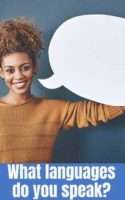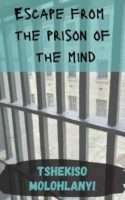21 February is world mother tongue day, established by UNESCO. The purpose is to highlight the importance of our mother tongues. As UNESCO states, ‘multilingual and multicultural societies exist through their languages which transmit and preserve traditional knowledge and cultures’. So when languages are threatened, groups of people’s systems of knowledge and culture are threatened too. And linguistic diversity is increasingly threatened as more and more languages disappear.
This year the theme is ‘multilingual education – a necessity to transform education’. This is particularly relevant to South Africa where there are 11 official languages, yet for most of their lives, young South Africans study in a language not their mother tongue.
Currently for Grades 1 to 3, learners are taught in their home language, and then in grade 4 they make the jump to English. This is not educationally sound practice. As one researcher found, learners who studied in their home languages till grade 4 knew about 800 English words – but then in grade 5, when the medium switched to English, they needed a vocabulary of at least 5000 English words used to understand the basics. They are expected to understand the same textbooks used by learners who have been learning everything in English up till this point. Surely it is clear that this is not an ideal system!
Research has shown how children need to learn new concepts in their home languages, and that this is actually more beneficial to learning processes than switching to English too young. But Bua-lit, a collective of language practitioners and activists, recommend that instead of the debate about ‘home language’ vs English, it needs to be recognised that most young South Africans have rich linguistic repertoires, and that these are drawn on for educational practices in the classroom. Too often, they say, policies are created by monolingual people who see languages in silos, with little understanding of how multilingual people use a range of language resources daily.
So what can we do to help children navigate the unequal system as it stands now? One important way is to encourage them to listen and read stories in English and mother tongue so that they can develop their understanding of both languages. You could make little books with children you care for in both languages, and when they are older you can talk to them about the languages they speak, and encourage them to report back what they learned in school – in any language of their choice. If there are debates at local schools about language, advocate for learning in both mother tongue and English from a young age so that children become proficient in both, and don’t jump from one to another.
If you are at school, college, or university and studying in English, don’t stop reading or speaking your mother tongue. See if you can find stories in your school, public library – or on fundza.mobi! Knowing more than one language is an asset and good for the brain! If you are struggling with work in English, see if you can discuss it in your home language with someone else, and then work out the translation back to English. Examine languages, compare them – what’s different, what’s the same? All of this helps to develop your thinking in both languages.
Language is part of our identity, and we need to recognise that the focus on English is in many ways a hangover from colonial rule, where English – and English people – had superior status. Sure, it is an international language, and a South African language too, but let’s also be proud of our own languages, and celebrate their role in our own learning and growth.
***
Tell us: How do you feel about the languages you speak?
Read more here on written language.



